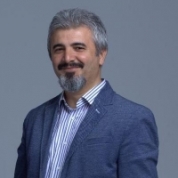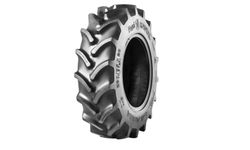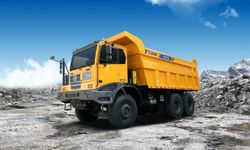In an interview with WERKSTATT aktuell, Bernd Spies, Member of the Executive Board of Knorr-Bremse, responsible for the Commercial Vehicle Systems division, and Alexander Wagner, Vice President Aftermarket/TruckServices EMEA at Knorr-Bremse, explain how the market leader for braking systems is nevertheless keeping pace in the truck business and also pursuing growth ambitions.
The last few years have been a real challenge for all companies operating in the truck segment. How did you and Knorr-Bremse experience this period?
Bernd Spies: From where I am today, I can look back on 30 years in the automotive business, over 15 of them in the truck sector. I would say that 2008 and 2009 were not easy years. But what we’ve been dealing with since 2020 has taken the challenges to a new level. For the entire team, for all the people who work at Knorr-Bremse, these have been the most difficult years to date. The Covid pandemic has also changed how people live and work. For companies, it has altered working rhythms. That alone is a huge challenge. But also the pandemic period, when business activities started up again and new and existing supply chains still needed to be found or set up, was a huge feat. We focused and concentrated on our core business and prioritized ensuring the smoothest possible supply to our customers. The fact that we succeeded in this is a huge achievement on the part of our employees.
The Covid pandemic and the war on European soil have disrupted supply chains and caused sales markets to collapse. How is Knorr-Bremse currently faring in terms of spare parts supply and overall economic development?
Bernd Spies: Due to inflation, we currently operate in an environment that creates very difficult conditions. We are confronted with inflationary effects and supply chains are not yet fully normalized, but we are getting a better grip on the situation. On top of that, we have a war in Europe, which generates uncertainty for all parties, be it for longer-term demand, energy supply or the future outlook for products and markets. So Knorr-Bremse is certainly facing plenty of challenges, but as a company we are steadily improving our ability to master them. We are also currently experiencing very healthy demand. In some cases, it is so high that we have to prioritize between different supply channels.
Alexander Wagner: We are also seeing high demand for Knorr-Bremse spare parts in the aftermarket. This is another area where we have managed supply bottlenecks very well and responded effectively to our customers’ needs.
Bernd Spies: One thing that has always been crucial is that our customers can rely on us – even at the expense of our stock at times. And this approach pays off. We have a high order backlog and can generate additional business. What’s more, our core markets of North America and Europe are stable and developing positively. The Chinese market is also recovering steadily, but has yet to return to the level of three years ago.

What impact are the current high raw material prices having on Knorr-Bremse’s business?
Bernd Spies: It is important to draw a distinction here, because Knorr-Bremse does not buy raw materials but primarily manufactured parts. Raw materials follow certain indices, and these are currently showing signs of easing. But unfortunately we are not yet experiencing any effect from this. A significant recovery of prices is not in sight, as energy prices and labor costs have risen dramatically and transportation costs are significantly higher than before the crisis. Despite a slight easing, we cannot say that the market has recovered. Nor are we expecting a swift return to the pre-crisis market level.
In August of this year, the Commercial Vehicle Systems (CVS) division reported a year-on-year increase in sales of around 16 percent. Do you expect this trend to continue in the remainder of 2023?
Bernd Spies: Thanks to the positive development of the commercial vehicle sector, we have had a good first half of 2023. Based on the increase in order intake and order backlog in the first six months, I am confident about the fiscal year as a whole.
So do you think the industry is over the worst impacts?
Bernd Spies: As things stand, I would say that we have learned to optimally manage crisis situations. But we are far from over the impacts of the crises. There is a lot of movement in the market due to supply chain difficulties and high inflation. This is felt acutely by suppliers, who have historically been the engine of the industry. But suppliers also need to benefit from the current market recovery and higher prices. We need higher margins again so that the industry can continue to develop positively – with e-mobility and automated driving, major changes are on the horizon, and they require very high levels of investment.
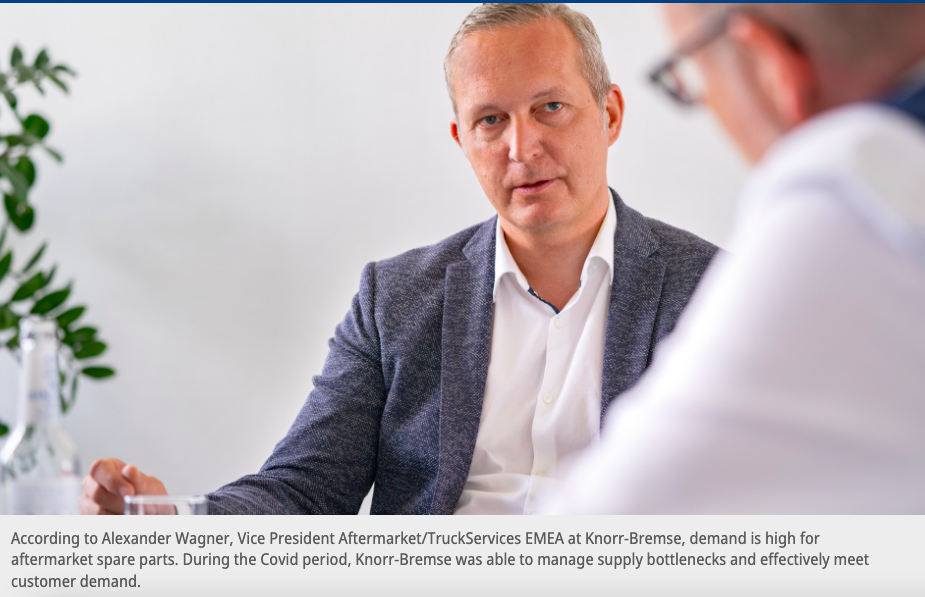
Despite this, Knorr-Bremse announced back in June last year that it had acquired a majority stake in the Spanish mobility services provider Cojali. Who is Cojali and what is the company’s position in the market?
Alexander Wagner: Cojali is one of the world’s leading suppliers of workshop equipment, and specifically in the field of commercial and special vehicles. It is a Spanish company with a successful history spanning more than 30 years, offering customers not only workshop equipment in the form of hardware and software, but also extensive technical support.
How financially sound is Cojali and how does the digital diagnostics provider fit into Knorr-Bremse’s portfolio?
Alexander Wagner: Cojali generated sales of around €90 million in 2022 and achieved low double-digit growth in recent years. In the medium term, we are convinced that the company will reach sales in the hundreds of millions and continue to grow. In terms of the portfolio, Cojali’s flagship is diagnostics. The company is one of the leading providers in this area. The Jaltest Diagnostics multi-brand diagnostic system covers the requirements of an entire commercial vehicle, both the tractor and the trailer, regardless of the vehicle manufacturer’s brand. Moreover, diagnostics is of course the foundation when it comes to big data analysis. It makes it possible to analyze which faults occur on which vehicle in which time period as well as which products are affected by the fault. This gives us a crucial basis for offering even more solutions in the area of digitalization in the future.
Given the know-how of Cojali, will Knorr-Bremse be offering predictive maintenance solutions in the future?
Alexander Wagner: We are currently talking about condition-based maintenance in the context of remote diagnostics. This involves the vehicle reporting faults that we can already cluster according to their urgency using fault codes. The data we generate with Jaltest Diagnostics will then help us to further expand the area of predictive maintenance.
At the same time, Knorr-Bremse already offers NEO, an established workshop diagnostics system. What are the differences between the two diagnostic systems?
Alexander Wagner: The NEO workshop diagnostics solution focuses on the Knorr-Bremse portfolio and therefore also offers fault-guided diagnostics for systems developed by Knorr-Bremse. Jaltest Diagnostics, on the other hand, works across brands and vehicles. As a result, the two system solutions complement rather than compete with each other. We are currently working on an integrated solution with diagnostic hardware for these two diagnostic worlds.
So NEO will not be discontinued?
Alexander Wagner: No, it will remain available to workshops as a module for the Jaltest Diagnostics solution. NEO will then be provided as a software solution, developed further and run on Jaltest devices. NEO will also be available to download for the existing Jaltest end devices under a licensing model. However, the ongoing development of NEO will then be pursued jointly by the two platform partners.
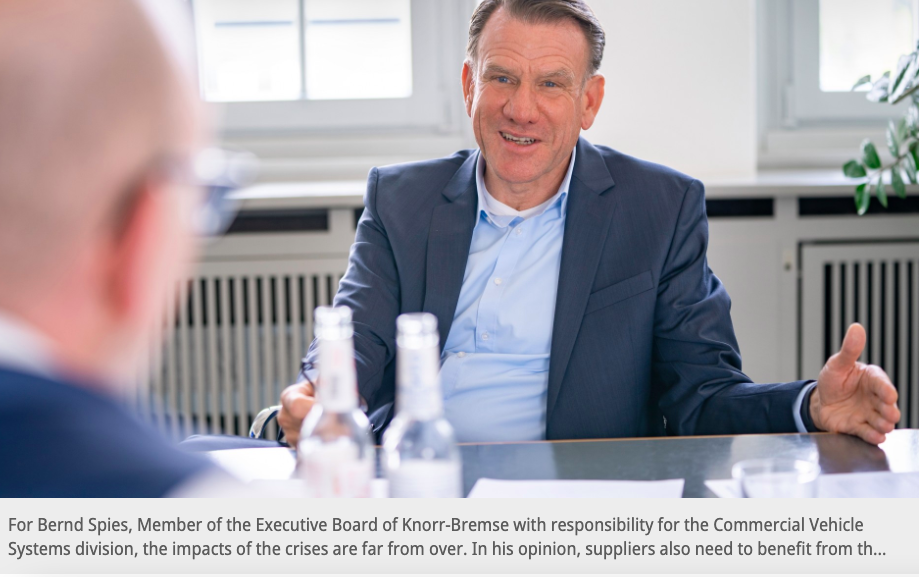
Alexander Wagner: What I can tell you on this is that Cojali is a global leader and Jaltest Diagnostics currently covers 6,000 truck models from 200 brands. Remote diagnostics, which takes place while the vehicle is on the road, is also enjoying great popularity with customers in combination with Jaltest Telematics, with more than 20,000 vehicles already on the road worldwide using this system.
Are any additional costs involved for Neo’s and Jaltest’s existing customers?
Alexander Wagner: A separate license is available to purchase for the NEO module. We will make a commercial offer to the existing users of NEO and Jaltest hardware, respectively, to make the switch to a complete Jaltest Diagnostics package attractive.
How does Knorr-Bremse TruckServices support its customers in integrating the two diagnostic systems?
Alexander Wagner: Integrating the two systems is actually self-explanatory, as the scope of NEO services will still be available, but now as integrated software. Nevertheless, we will also offer appropriate training to support users. In addition, the technical hotline of both Knorr-Bremse and Cojali will be on hand to assist customers as required.
Currently, diesel remains the drive concept of choice in freight transport. Nevertheless, battery electric and hydrogen electric mobility are gradually finding their way into fleets – both for tractor and trailer units. This also presents a new set of challenges for predictive maintenance. How are Cojali and Knorr-Bremse positioned to meet these challenges?
Alexander Wagner: As I said, we already offer a remote diagnostics solution. This gives us access to everything in the vehicle that is relevant for diagnostics. And regardless of how the vehicle is driven, the system will thoroughly check the condition of the vehicle in order to provide the fleet operator or the workshops with information on the presence and description of any faults. We will continue to expand this topic in the direction of predictive maintenance – also with an eye on vehicles with alternative drives. Of course, this journey will also involve checking the battery status, e.g. how quickly the battery is discharging, how long it takes to fully charge the battery, the temperature of the storage medium – all of this will come.

Bernd Spies: Another aspect that will prove important is user behavior, which is bound to change as e-mobility progresses. In the medium to long term, these trucks will be more expensive and will therefore be left idle less. That means more time on the road, which makes remote diagnostics and predictive maintenance extremely important. Besides, e-mobility is going to alter the entire transportation landscape. In the future, freight forwarders may no longer purchase the new trucks, but lease them instead. Pay-per-use models are also conceivable, given the high purchase price. If we now add automated driving to the mix, plus frequent update requirements for the vehicle’s software, user behavior is going to change accordingly. And Knorr-Bremse is ideally positioned to respond to this, especially with a company like Cojali.
Whether it’s a combustion engine or an electric vehicle – they all need to hit the brakes. How do Knorr-Bremse and Knorr-Bremse TruckServices view the transformation in mobility?
Bernd Spies: That’s true. But the shift toward e-mobility also places new demands on brakes. Today’s e-trucks are diesel vehicles with e-motors. Tomorrow’s e-trucks will be built around this new drive and technology, with different approaches and different platforms. Perhaps these vehicles will require smaller brakes, but they will still have to provide the same power for emergency braking. There is a lot of discussion on this topic. One thing is certain: brakes will continue to evolve. Many customers are already willing to engage in these discussions with us and enter into more in-depth partnerships. We are also actively exchanging ideas with our customers about brake dust emissions so that we can offer new solutions. Aside from the brakes, however, the existing infrastructure must be adapted to the new trucks. On the subject of charging infrastructure, I don’t think the government is moving fast enough to help the industry push the issue forward. More urgency is needed here, otherwise the transport industry will have the wind taken out of its sails.
Alexander Wagner: E-mobility will not be the only challenge for commercial vehicle workshops in the future. The topic of sustainability will also become increasingly prominent for workshops. We already began developing a broad portfolio for remanufactured products in 2013 (see box) and launched our own plant for remanufacturing activities. Electronic repairs will be a growing focus of workshops as the proportion of electronic components continues to rise. To this end, we are already working on solutions that enable guided electronics repair, including end-of-line testing. In addition, new vehicle brands will steadily gain ground in the European commercial vehicle market. Already today, there are new Chinese and Turkish manufacturers that are quickly establishing themselves. For them too, we are working flat out to develop technical solutions to support workshops in servicing these vehicles. And with regard to talent shortage, we are trying to reduce the entry hurdle for using the workshop tools, particularly by improving user guidance.
In October 2023, this interview appeared in WERKSTATT aktuell, issue 3/2023.

